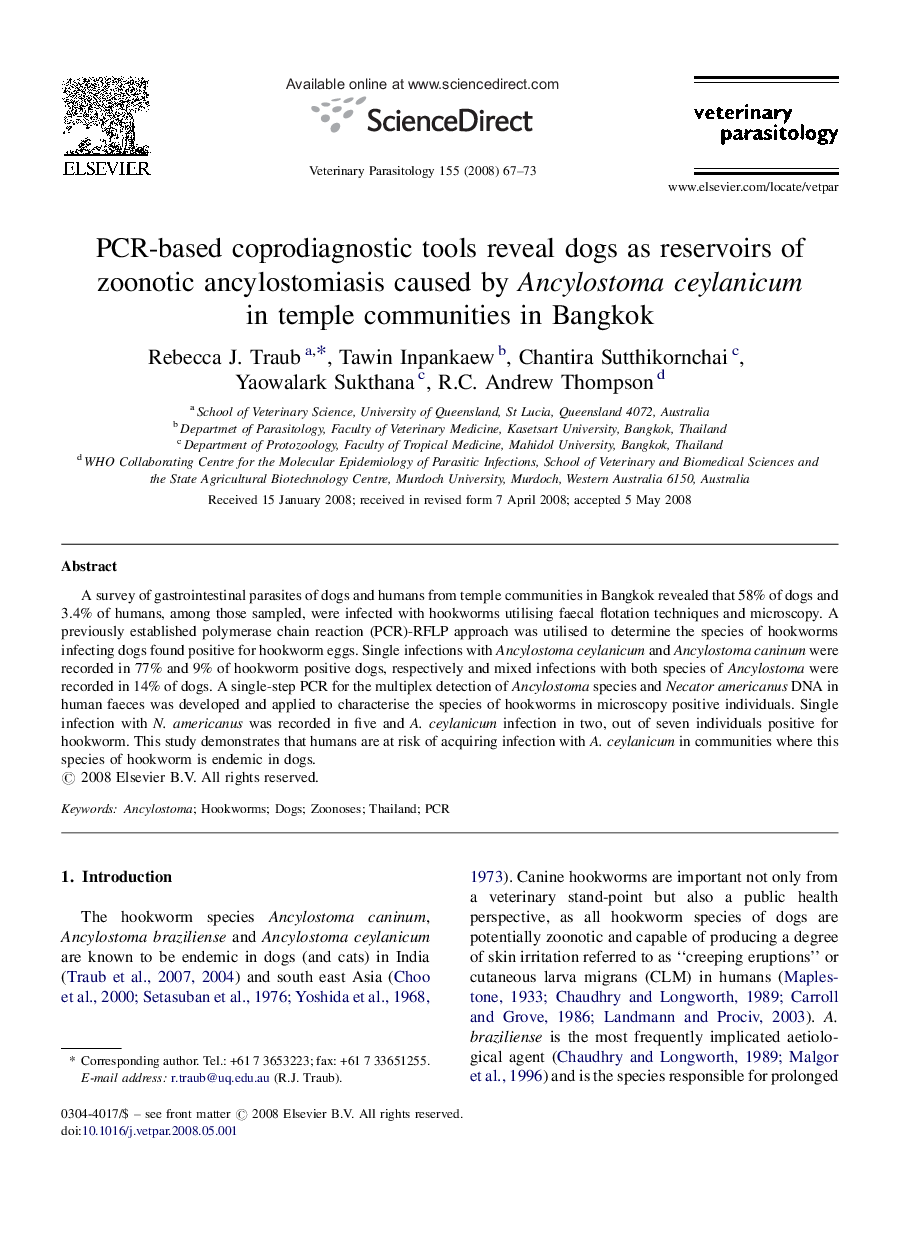| Article ID | Journal | Published Year | Pages | File Type |
|---|---|---|---|---|
| 2471453 | Veterinary Parasitology | 2008 | 7 Pages |
A survey of gastrointestinal parasites of dogs and humans from temple communities in Bangkok revealed that 58% of dogs and 3.4% of humans, among those sampled, were infected with hookworms utilising faecal flotation techniques and microscopy. A previously established polymerase chain reaction (PCR)-RFLP approach was utilised to determine the species of hookworms infecting dogs found positive for hookworm eggs. Single infections with Ancylostoma ceylanicum and Ancylostoma caninum were recorded in 77% and 9% of hookworm positive dogs, respectively and mixed infections with both species of Ancylostoma were recorded in 14% of dogs. A single-step PCR for the multiplex detection of Ancylostoma species and Necator americanus DNA in human faeces was developed and applied to characterise the species of hookworms in microscopy positive individuals. Single infection with N. americanus was recorded in five and A.ceylanicum infection in two, out of seven individuals positive for hookworm. This study demonstrates that humans are at risk of acquiring infection with A. ceylanicum in communities where this species of hookworm is endemic in dogs.
